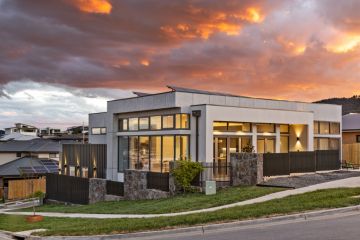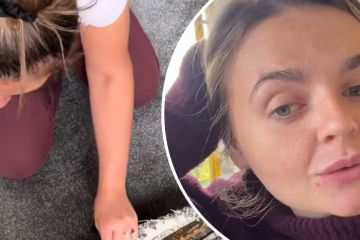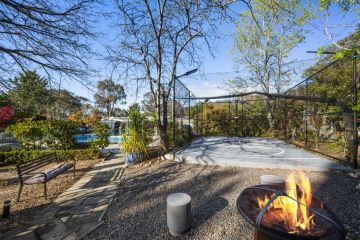Fraudsters, con artists and fantasists: the trophy home buyers agents don’t want

Buyer’s agent Simon Cohen has had plenty of memorable and high-profile clients but the only one he’ll discuss was a well-dressed woman with mousy blonde hair in her 40s who came highly recommended from a banker to buy a home worthy of her $30 million budget.
“She fully signed up, signed our agreement, rocked up in an Audi and promptly name-dropped the dealership from where she had just bought matching black and white Porsches,” said Cohen.
“I didn’t know it then, but I later found out the dealer had never heard of her and she’d already conned the banker who referred her.”

Before her ruse was exposed, Cohen presented her with five potential houses, and she fell in love with one of them, a waterfront house in Mosman.
“She asked so many questions, made changes to the contract and played out the whole process over weeks,” said Cohen. “It got to the point that one of my assistants tasted the pool water to tell her if it was chlorine or saltwater.”
But when the $3 million deposit never landed in the selling agent’s trust account, despite the buyer presenting a forged Macquarie Bank transfer receipt to prove she had sent the money, Cohen made inquiries. The receipt was a fake and so was she.
“I don’t know if it was a scam or a mental illness,” said Cohen. “She wanted to think she was a $30 million buyer. If it was a con, I’m not sure what the scam was.”
Cohen is far from the only buyer’s agent operating in Sydney’s high-end real estate market who has been taken in, but he is one of the few who was at least paid for his services.
Buyer’s agents Richard Carwin and Munro Donen tell similar stories about a marketing executive in his 50s who said he had inherited money and was looking to buy a house for $10 million to $12 million.
The would-be buyer usually had a new “girlfriend” in tow for whom he was buying the property. He talked of his new G-class Mercedes-Benz even though he always arrived by Uber, and he never paid a retainer for their services, instead insisting he would pay a 1.5 per cent commission on the purchase.

He wasn’t Donen’s only fake buyer of the past 12 months. Another buyer was referred to him to buy a Pyrmont apartment for $15 million as a matter of urgency, only to be later revealed to be wanted by police on fraud charges.
Forbes Global Properties’ Ken Jacobs, who has sold many of Sydney’s most expensive homes, says the more significant the property, island or luxury resort, the more likely it is to draw the attention of fantasists, con artists and fraudsters.
Richard Vanhoff, whose specialty is selling private islands, has had his fair share of fake buyers, of which his most memorable was serial conman and wanna-be rock star David Ashworth, known as David Otto, who was in negotiations to buy Temple Island.
Despite never paying the $5000 deposit on his purchase, Ashworth used the island to lure young women on the promise of work in the music industry, only to try and engage them in group sex.

Prestige agents in the eastern suburbs roundly acknowledge there is always one or two fake buyers in a year, but The Agency’s Ben Collier said he has crossed paths with half a dozen this year.
“I’ve just never seen this number of predators before,” Collier said. “They’re even taking it a step further and in some cases buying a pest and building inspection report, or clocking up lawyers’ fees on the contracts, and using buyer’s agents.”
James McCowan, of Sotheby’s International, agrees con artists have long been a risk factor in the high-end housing market. He cites the recent example of a lawyer looking to spend $20 million on the north shore who took his partner and parents through a property, paid for a pest and building inspection and used a bona fide lawyer to look over the contract.
But a background search later revealed he couldn’t transact and he was really just pushing his fantasy on the people around him, said McCowan.
“I don’t think the numbers of these fake buyers have necessarily increased, but as there are fewer real buyers in the market, these fakes are more exposed.”
Associate professor Cassandra Cross of the School of Justice at the Queensland University of Technology said given an increase in romance scams since COVID, she was not surprised to hear high-end real estate being used by such scammers.
“They’re using the property to portray this image of status and wealth,” said Dr Cross. “It’s a particular technique of an offender to try and legitimise their image while they’re grooming the victim to give them money.”
Collier said whether fake buyers are classified as fantasists or fraudsters, neither are to be confused with tyre-kickers and nosey neighbours who are always part of the sale process.
“The fact these people are investing in their ruse, actually paying money to maintain their elaborate storyline, is why the vetting process that agents go through to protect their clients is far more significant now than in previous years,” said Collier.
Veteran Double Bay agent Bill Malouf has legions of stories of his encounters with con artists of various degrees of sinister intent, but warns agents to never dismiss a buyer by how they look.
“They might look badly dressed and have bare feet, but what legitimate buyers won’t do is big-note their wealth and name-drop the sort of car they drive.”
We recommend
We thought you might like
States
Capital Cities
Capital Cities - Rentals
Popular Areas
Allhomes
More
/http%3A%2F%2Fprod.static9.net.au%2Ffs%2F363f5bcd-7d85-4aad-b562-ac6b93bb5eaf)








